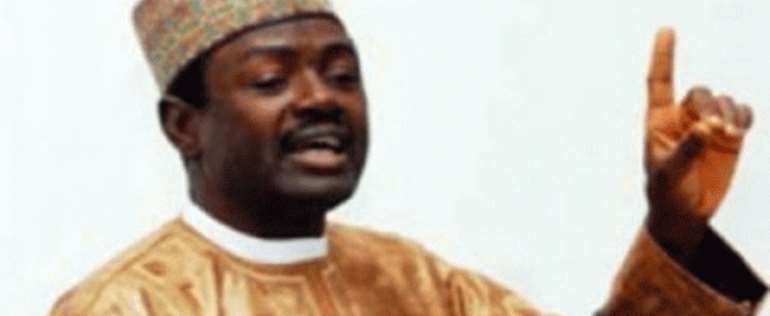Transparency Int'l ranks Nigeria 35th most corrupt country … as FG faults report

Nigeria still ranks high in global corruption perception. Only 34 countries separate her from prime number one position in a survey which featured 176 countries.
The report is coming when the Federal Government claims it winning the fight against corruption. Nigeria has been ranked the 35th most corrupt country in the world.
In the 2012 report by Transparency International on global corruption released on Wednesday, Nigeria scored 27 out of a maximum 100 marks to clinch the 139th position out of the 176 countries surveyed for the report. It shared that position with Azerbaijan, Kenya, Nepal and Pakistan while Countries such as Togo, Mali, Niger and Benin fared better than Nigeria.
But the Federal Government in a swift reaction to the report faulted the methodology adopted by TI that still pictured Nigeria among the top corrupt countries.
Minister of Information, Mr Labaran Maku stated at the end of the weekly Federal Executive Council (FEC) meeting presided over by President Goodluck Jonathan, he said both the TI report and a recent Gallup Poll that also showed that Nigeria was among corrupt nations globally were products of interactions with Nigerians and synopsis of negative media reports.
Last year's report placed Nigeria 143rd, making it the 37th most corrupt country. However, when compared with this year's result, it is difficult to say whether Nigeria has recorded any significant improvement.
According to the report, this year's index ranks 176 countries/territories by their perceived levels of public sector corruption. The index draws on 13 surveys covering expert assessments and surveys of business people.
The Corruption Perceptions Index is the leading indicator of public sector corruption, offering a yearly snapshot of the relative degree of the corruption problem by ranking countries from all over the globe.
The organization has urged governments to integrate anti-corruption actions into all aspects of decision-making and prioritize better rules on political financing, make public spending and contracting more transparent, and make public bodies more accountable.
According to Maku, all these are perceptions of both the people and the media practitioners which fail to appreciate that the incumbent administration was taking steps to deal with corruption by employing systematic and institutional approaches that are gradual in yielding results.
Maku gave the instance of the prosecution of fraudsters implicated in the fuel subsidy scam, investigation into the pension fund scandal, the geometric auditing of Ministries, Departments and Agencies (MDAs) and curbing of graft in the supply of fertiliser and seeds to farmers, as commendable efforts by Government in tackling corruption.
He recalled that when President Jonathan promised to curtail patronage in the oil and gas sector, thereby introducing deregulation of the sector, Nigerians became hysterical and shut down the proposal by 'mobilising to oppose it.'
'Government has continued to take decisive measures against defaulters in the fuel subsidy scam. There are so many issues involved in dealing with corruption. When you are systematic and deliberate reform goes deeper,' Maku said.
'The president does not seat in court to imprison people. There are institutions set up to do that,' the Minister observed, advising journalists to follow up on institutional proceedings to get to the roots of matters and thereby unearth omissions and commissions, so that government will be able to track and act on such.
He agreed that Nigeria has been bogged down by corruption for many years but appealed that this trend cannot just be eradicated with the wave of a magic wand. 'If there are areas where things are not be done right, journalists should follow up,' he advised.
'The federal government will continue to support all efforts to fight abuses,' he posited, adding that it will, however not squander the resources, material and human, available to it in doing so.
